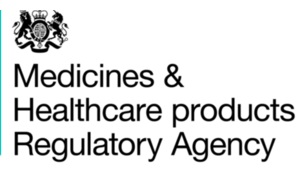
-
5th Sep 2016, 09:26 PM
#1
The Research Quality Association published a Q & A in July 2007 that was reviewed by the MHRA
quote :- "The MHRA have seen examples of overuse or inappropriate use of file notes and do not expect planned protocol deviations or violations to be tracked via file notes. Planned deviations from a protocol should be handled via a protocol amendment, significant deviations from the agreed protocol are a breach of legislation".
The Research Quality association is about to publish a more general Q & A on File Notes in its journal QUASAR. You might find it interesting:-
"Each organization should determine if and how they will use Notes To File (NTF), File Notes, Memos to File, Explanatory Memos, etc.
GCP Inspectors have often taken a very negative view of Notes To File (NTF). If we look at just one famous example, the FDA Warning Letter Sponsor Inspection Sanofi-Aventis 23 Oct 2007:- "At least 89 memos to file were generated during the April 2002 monitoring visit to address ... violations. ...., generation of memos to file ... does not adequately secure compliance of an investigator. …Aventis's method for securing compliance, (i.e., the generation of more than 125 memos to file for protocol and informed consent deviations noted at the site) was not adequate……."
Notes to File (NTF) may be acceptable when an event, decision or situation requires explanation and there are no other study documents designed or suitable to capture this information. They should never be used in place of, for example, a properly executed protocol amendment or routine source documents such as medical notes. They should be used sparingly and not replace other source documents or essential documents.
Other points for consideration:
• Subjects’ safety, well being, rights and confidentiality are paramount and consequently no Note to File should replace or inhibit the duty of care to subjects. Where applicable, the IRB/IEC & Regulatory Authorities (in some cases) may need to be notified of some important deviations.
• Notes to File do not replace the need to document and escalate any protocol deviations
• Notes to file should be Accurate, Legible, Contemporaneous, Original, Attributable, Complete, Consistent, Enduring, & Available when needed (the ALCOACCEA criteria). NTFs should be attributable and this is often confirmed by means of a signature. They should be dated contemporaneously and never backdated.
• Notes to file should be documented by the individual responsible for the work or situation described. For example, a monitor might assist the investigator site staff to formulate a Note to File concerning an issue at the site, but should not take responsibility for the documentation. The note should be attributable to the staff member most responsible. Depending on the topic of the note, it might be appropriate for the Principal Investigator to document the note or at least acknowledge responsibility by signing.
• Notes to file should describe (or make reference to) the corrective and preventive actions (CAPA) plans that were put in place to correct the problem and prevent recurrence. Accompanying documentation of any related communication and corrective and preventive action should also be retained.
• Notes to file should be factual and preferably clarify a complex situation or sequence of events
Notes to file may demonstrate diligence and oversight when documenting a deviation or error, but will not necessarily avoid an inspection or audit finding relating to that deviation or error. A properly executed deviation escalation and follow-up process, may help avoid an inspection or audit finding relating to lack of oversight or lack of escalation process regarding that deviation. Notes that are written immediately prior to an audit or inspection will not demonstrate habitual diligence by staff. Instead, they will demonstrate “cleaning” in anticipation of the audit or inspection and may be a cause for concern".
 Posting Permissions
Posting Permissions
- You may not post new threads
- You may not post replies
- You may not post attachments
- You may not edit your posts
-
Forum Rules






 Reply With Quote
Reply With Quote